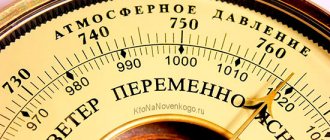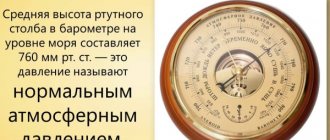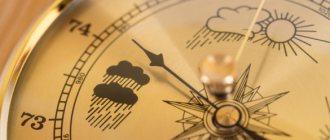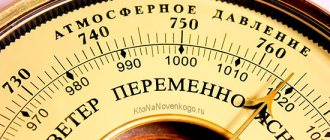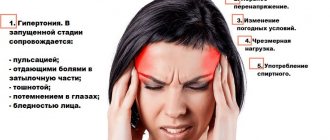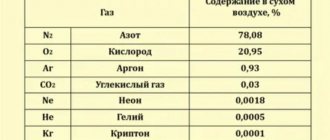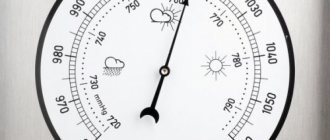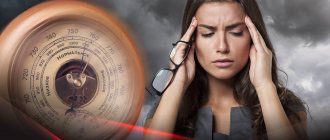How weather affects a person's blood pressure
Weather changes are perceived by most people as a natural phenomenon. Yes, your mood may spoil on a cloudy day, nothing more. But there is a category of people who, when the atmospheric pressure changes, feel a significant deterioration in their overall health: headaches, dizziness, loss of strength, aching joints. These and other symptoms significantly complicate the life of a person suffering from weather dependence. But knowing how atmospheric pressure affects the pressure in the blood vessels, you can understand what measures to take to prevent health problems. Polina Zhelezova , chief physician of the OGBUZ Center for Public Health and Medical Prevention, chief freelance specialist in medical prevention of the Department of Health of the Kostroma Region, talks about this
.
Atmospheric pressure and blood pressure, that is, the pressure in the vessels of our body, are closely related. Arteries and veins quickly respond to changes in the atmosphere, expanding or narrowing. Thus, a healthy person does not feel discomfort. If a person has a history of problems with the cardiovascular, endocrine, nervous system, or the body is simply weakened due to vitamin deficiency, excessive physical or emotional stress, then his blood vessels simply cannot keep up with changes in nature and attacks of hypertension or hypotension occur.
High atmospheric pressure
Changes in atmospheric pressure are directly affected by air temperature, humidity parameters, wind speed and even seasons. So, when we observe a frosty, clear day, without precipitation, this indicates high atmospheric pressure, that is, an anticyclone. What happens in the human body, namely with its blood pressure? It, following the established connection, also increases. At the same time, the condition of hypertensive patients especially worsens; “due to the weather,” their blood pressure rises even higher. The most common unpleasant symptom of this condition is headache of varying intensity and character. But other signs may also occur: tinnitus, hearing impairment, darkening of the eyes, dry mucous membranes, strong heartbeat, rhythm disturbances, pain in the heart area, increased breathing, shortness of breath. If the pressure jump was sharp, then in the absence of proper help, an acute attack of hypertension, known as a hypertensive crisis, is possible. And this is the first step to strokes and heart attacks.
Low atmospheric pressure
With high air humidity, cloudiness, high temperature and low atmospheric pressure, a cyclone appears. Most often this happens in autumn and spring. At this time, hypotension suffers the most - people whose blood pressure may not reach 100/60 mmHg. Art. At the same time, due to the dilation of blood vessels, blood circulates more slowly throughout the body. This leads to oxygen starvation of tissues and organs. During a cyclone, the pressure drops even lower, which causes the following symptoms: dizziness, apathy, decreased performance, severe headaches, weak pulse, possible digestive system disorders, difficulty breathing. What happens to the blood pressure of hypertensive patients during a cyclone? They also suffer from sudden weather changes. Most people with hypertension take medications to control their symptoms. First of all, medications to lower blood pressure. During a cyclone, its indicators drop even lower, which worsens a person’s general well-being. He feels a loss of strength, decreased attention, pressing pain in the head and blurred vision.
Recommendations for hypotensive and hypertensive patients
Depending on what condition you are suffering from, hypotension or hypertension, the list of doctor's recommendations is very different. If the patient complains of symptoms characteristic of low blood pressure
, then when the weather changes, you need to spend more time in the fresh air, engage in active sports (jogging, cycling, swimming), drink plenty of fluids, drink caffeinated drinks (strong tea, coffee), for an emergency increase in blood pressure, take tinctures of lemongrass, ginseng, and eleutherococcus .
For people prone to hypertension, doctors strongly recommend
adhere to the following rules: avoid physical and emotional fatigue, avoid walking in the sun, constantly ventilate the room, adhere to proper nutrition, excluding salty, spicy, spicy and fatty foods, do not drink coffee and other drinks containing caffeine, take medications prescribed by your doctor on time .
In any case, you should establish a daily routine, get more rest, avoid stress and eat right. And in order to help your body in a timely manner, it is important to control your blood pressure using devices.
Monitor the temperature and humidity
In addition to atmospheric pressure, other weather parameters also affect the body, namely air temperature and humidity.
If, at high atmospheric pressure, there is a sharp and significant decrease in temperature and an increase in air humidity, a state of hypothermia may develop, in other words, hypothermia. In this case, vasospasm occurs, which provokes a decrease in heat transfer. With persistent spasm, pressure increases significantly, this can lead to a hypertensive crisis.
As humidity increases, the amount of oxygen in the air decreases. The body reacts painfully to oxygen starvation, dizziness, weakness, numbness of the limbs occur, and panic attacks are possible. If the pressure on the weather fluctuates, you feel unwell, emotional and physical disorders, this condition is called meteopathy. Various factors influence susceptibility to this condition: genetic predisposition, age, personality traits, and the presence of chronic health problems. Manifestations of this syndrome can knock a person out of the usual rhythm of life for several days. At the same time, in addition to physical ailments (dizziness, changes in blood pressure, changes in body temperature, weakness, numbness of the limbs, allergy attacks, etc.), a whole range of psychological reactions is observed: apathy, depression, tearfulness, irritability, increased anxiety, panic attacks.
If you are prone to this condition, you need to adhere to a healthy lifestyle, reduce emotional and physical stress, and monitor weather forecasts in order to be prepared for weather changes.
Effect of pressure and temperature changes
Changes in air temperature cause many health problems for hypertensive patients. During the period when the anticyclone is combined with heat, the risk of heart damage and cerebral hemorrhages increases significantly. Due to increased humidity and high temperature, the oxygen content in the air decreases significantly. This weather has a particularly bad effect on older people. These weather conditions often cause blood to thicken, which leads to strokes, heart attacks and blood clots.
The health and well-being of hypertensive patients greatly deteriorates if the ambient temperature drops sharply and the atmospheric pressure, on the contrary, increases.
Changes in atmospheric pressure with altitude
It is known that the lower the pressure, the higher it is from sea level.
The effect of air pressure on the blood pressure of a person who is at a high altitude above sea level manifests itself in the form of the following symptoms:
- acceleration of heart rate;
- rapid and difficult breathing;
- attacks of suffocation;
- sore throat;
- blood from the nose.
For hypertensive patients, a sudden change in pressure threatens loss of consciousness.
Air pressure under water and underground increases. The effect that has on a person’s blood pressure is directly proportional to the distance to which it is necessary to descend.
The following symptoms appear:
- rare and deep breathing;
- heart rate decreases;
- mucous membranes become dry;
- the skin becomes numb.
Biometeorology. General concept
This rapidly growing field of science has little in common with the well-known phenomenon of meteopathy. Up to 70 percent of Europeans complain of feeling unwell during weather changes, but in most cases it is a headache or fatigue. Meanwhile, people suffering from hypertension or too high cholesterol levels can die just because the temperature outside the window dropped by 10 degrees in autumn or winter. In such conditions, the risk of a heart attack increases by 13%, and for those who have already had a heart attack, by as much as 38%. This indicator appeared as a result of a study by scientists from the University of Lille. That's why weather forecasts will soon include not only messages about allergies or information about the intensity of UV radiation, but also specific recommendations for people with asthma or coronary heart disease. This science helps to identify the dependence of blood pressure on atmospheric pressure in both hypertensive and hypotensive patients.
Doctors' recommendations
In order to survive a decrease or increase in atmospheric pressure, you need to follow certain recommendations. First of all, on such days you need to limit physical activity and rest more. It is also important to maintain good health to sleep at least 8 hours a day and always get enough sleep. If you have hypertension, it is advisable to drink more fluids. This can be plain water, as well as herbal and berry teas.
On such days you need to eat more healthy foods. First of all, this applies to vegetables and fruits. In addition, you need to take mineral and vitamin complexes. It is important to take medications in the dosage prescribed by your doctor. This will help to significantly improve your well-being and survive weather changes.
You need to start your morning with light exercise. It is enough to spend 10-15 minutes on the procedure. The exercises should be simple. After charging, it is advisable to take a contrast shower. Alternating warm and cool water will increase the elasticity of blood vessels.
Differences between cities
Warsaw is best visited in spring (from April 25 to May 10) or autumn (from September 4 to October 26). In winter, the capital, like other megacities, becomes exceptionally unhealthy due to temperature and poor air quality. Toxic gases lead to hypoxia of the body and increase blood pressure, and fine dust enters the lungs and bloodstream, where it can damage the coronary vessels. In a metropolitan area like Athens, a one milligram per cubic meter increase in carbon monoxide concentration in the air means more than two fatal heart attacks in a day. Research in France has shown that when car exhaust dust levels exceed 25 mg/m3, 91% more heart attack victims are admitted to hospital. The World Health Organization (WHO) estimates that five billion people breathe polluted air and three million die every year.
At-risk groups
Abnormally high atmospheric pressure causes deterioration in well-being and decreased performance in a large number of patients who are grouped into several risk groups:
- in pathology of the heart and blood vessels - pressure fluctuations cause decompensation of the cardiovascular system, cerebral circulation with the development of pre-infarction conditions, pre-stroke conditions, hypertensive and hypotensive crises, atherosclerotic changes can lead to rupture of blood vessels, thromboembolism;
- for skin diseases - high air pressure dehydrates the skin, forcing it to spend a lot of energy on “heating”: the dermis dries out, peels, cracks, which aggravates chronic dermatoses, trophic ulcers, sometimes frostbite, urticaria from the cold;
- for diseases of the gastrointestinal tract - spasm of the arteries of the stomach, intestines, biliary tract, pancreas provokes an exacerbation of chronic pathologies;
- Physical inactivity - sedentary patients treat exercise as a way to cope with a cold, but hypoxia and inactivity lead to undesirable consequences: shortness of breath, surges in blood pressure, pre-infarction state;
- for respiratory diseases - COPD (obstructive pulmonary disease), bronchial asthma, exacerbation of pulmonary hypertension, provoking bronchitis, pneumonia, pulmonary failure;
- with damage to the central nervous system - post-stroke conditions can lead to repeated brain damage, provoke depression, suicidal thoughts;
- in case of mental illness - air vibrations provoke psychoses, psychoneuroses, exacerbations of schizophrenia, manic-depressive states.
Treatment of weather dependence
Treatment of meteosensitivity is the exclusive prerogative of the doctor. Self-medication is dangerous due to unpredictable consequences. The doctor will prescribe medications depending on the aggravated diseases that need to be stopped.
- Antidepressants: Amizol, Sertraline, Reboxetine.
- Tranquilizers: Seduxen, Nozepam, Afobazol.
- Diuretics: Furosemide, Hypothiazide, Diacarb.
- Sedatives: Novopassit, Motherwort, Valocordin.
- Antihypertensives: Capoten, Enap, Betalok.
Intracranial pressure is well reduced by homeopathic Lymphomyosot and stimulates brain activity - Lucetam, Cavinton.
